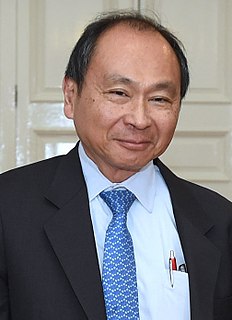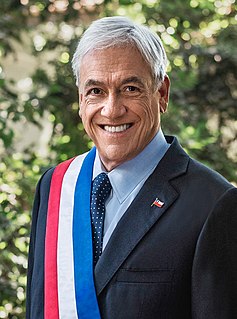A Quote by Alok Sharma
We want to help countries ultimately to become self-sustaining. That has to come through economic development.
Related Quotes
What Asia's postwar economic miracle demonstrates is that
capitalism is a path toward economic development that is potentially
available to all countries. No underdeveloped country in the
Third World is disadvantaged simply because it began the growth
process later than Europe, nor are the established industrial powers
capable of blocking the development of a latecomer, provided
that country plays by the rules of economic liberalism.
It is clear that there are reasons for discontent in Iran - economic and political reasons. We have told the Iranian leadership repeatedly that the country's economic recovery can ultimately only succeed through greater international economic cooperation. And the precondition for that is not only that Iran refrain from developing nuclear weapons, but also that Iran's role in the region become far more peaceful. We have offered to finally hold true negotiations and talks on that issue.
The myth of the self-sufficient individual and of the self-sufficient, protected, and protective familytells us that those who need help are ultimately inadequate. And it tells us that for a family to need help--or at least to admit it publicly--is to confess failure. Similarly, to give help, however generously, is to acknowledge the inadequacy of the recipients and indirectly to condemn them, to stigmatize them, and even to weaken what impulse they have toward self-sufficiency.
Only one rational path is open to us - simultaneous de-development of the [overdeveloped countries] and semi-development of the underdeveloped countries (UDCs), in order to approach a decent and ecologically sustainable standard of living for all in between. By de-development we mean lower per-capita energy consumption, fewer gadgets, and the abolition of planned obsolescence.


































